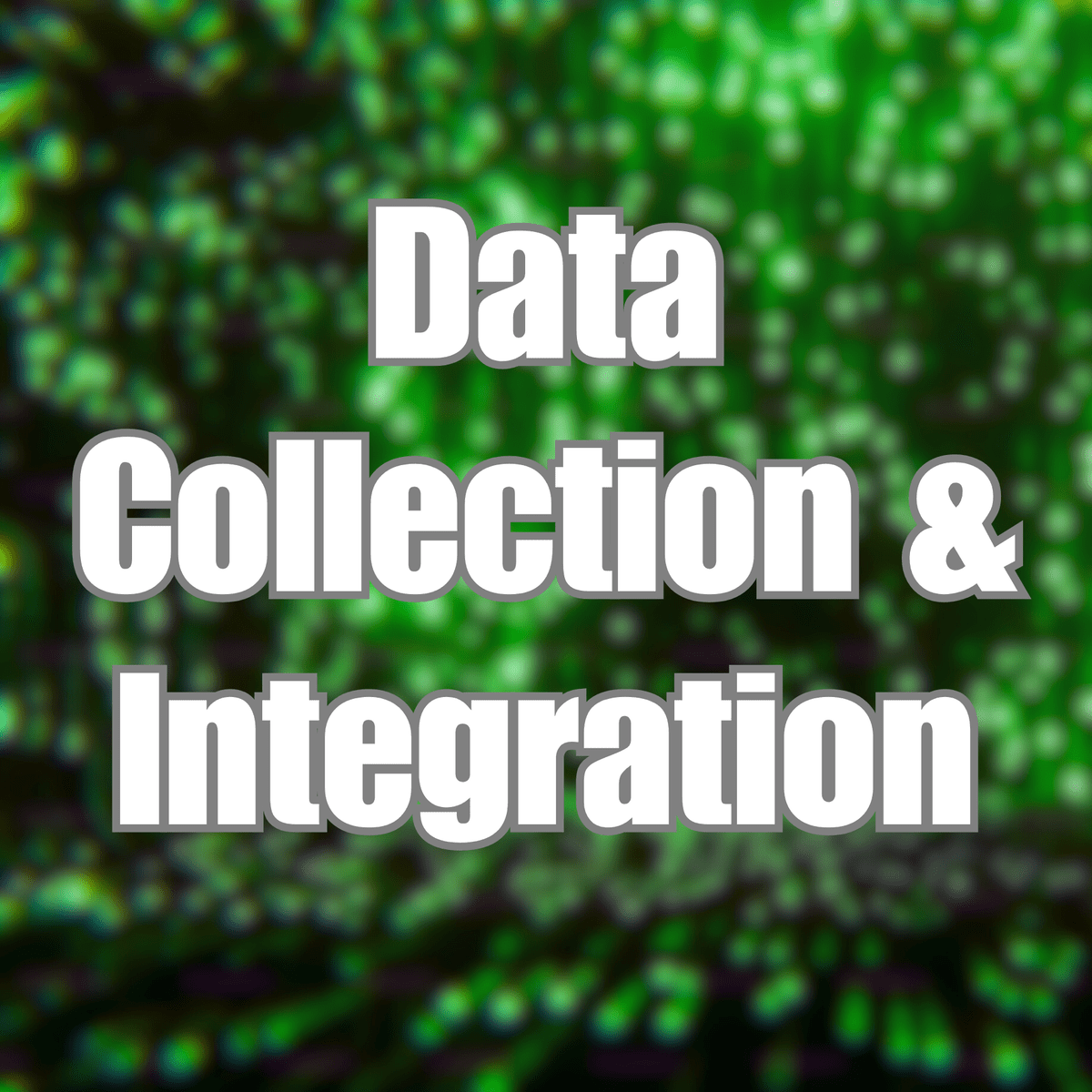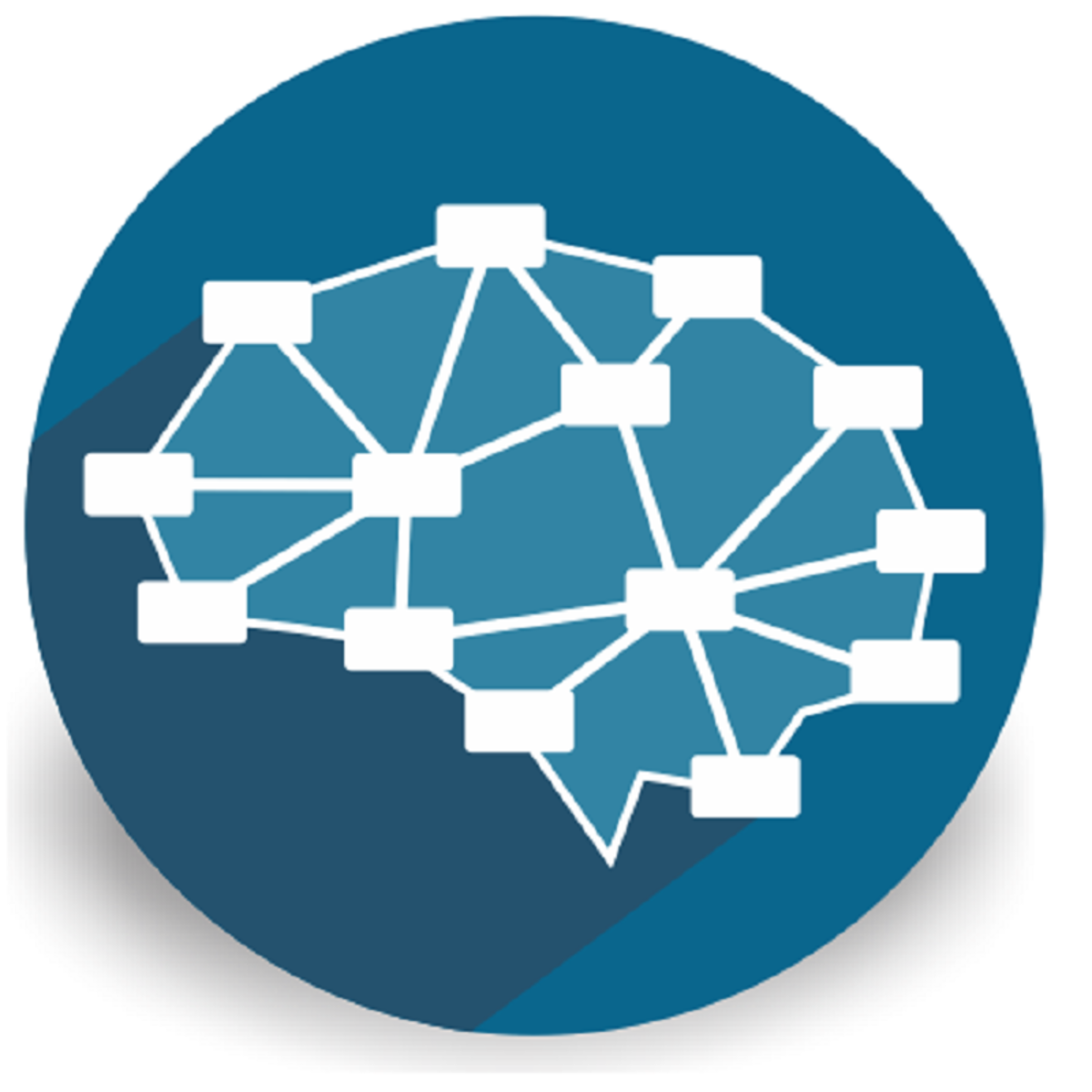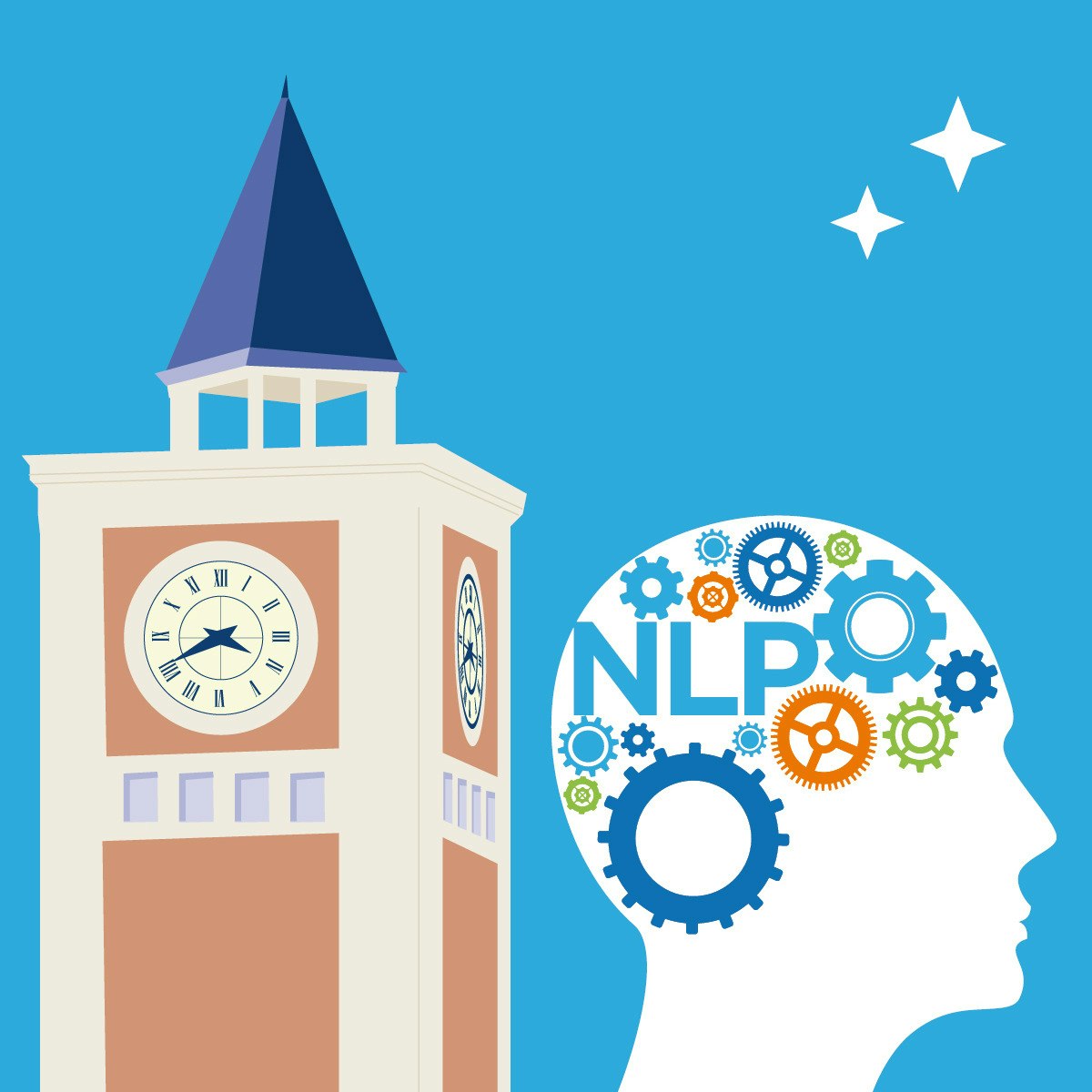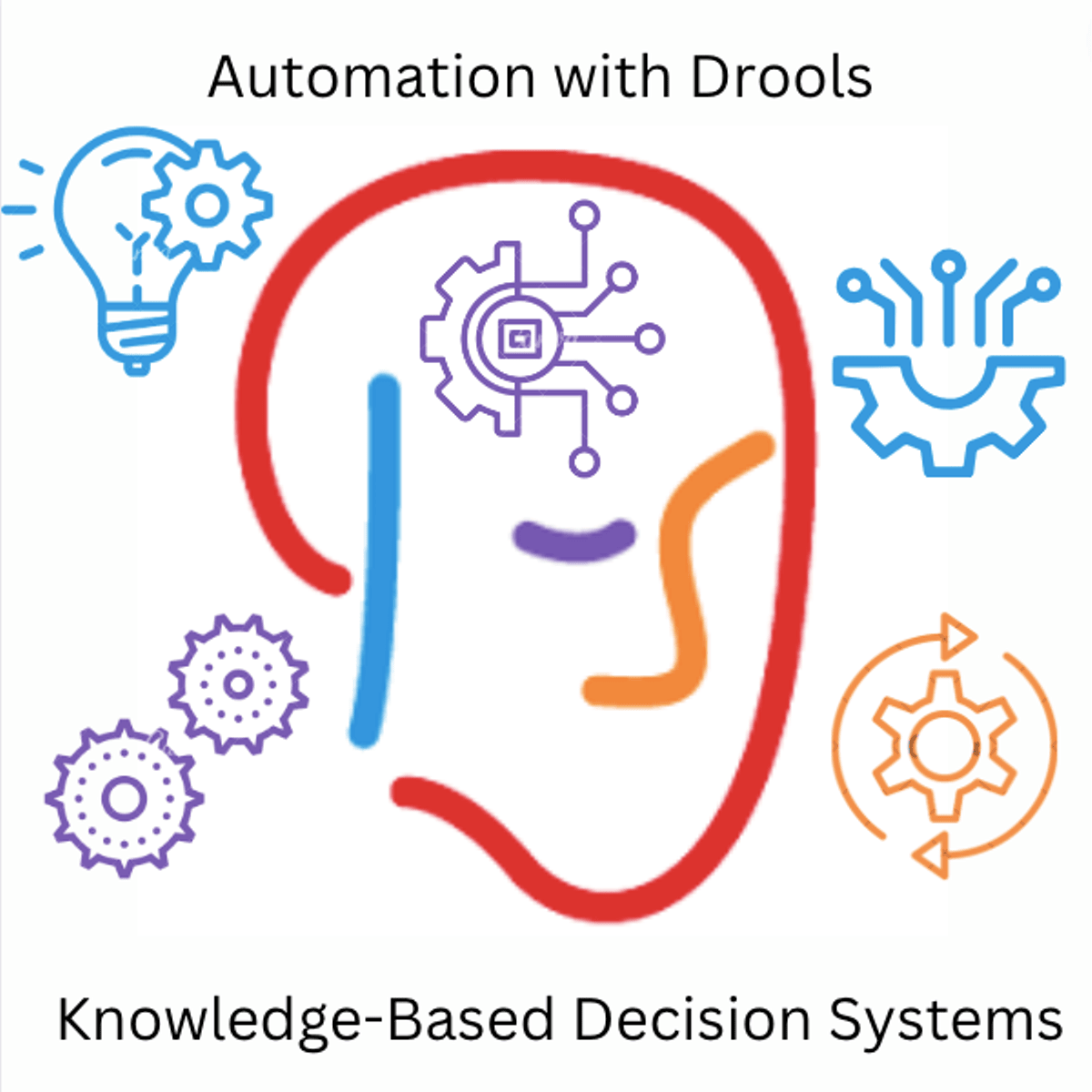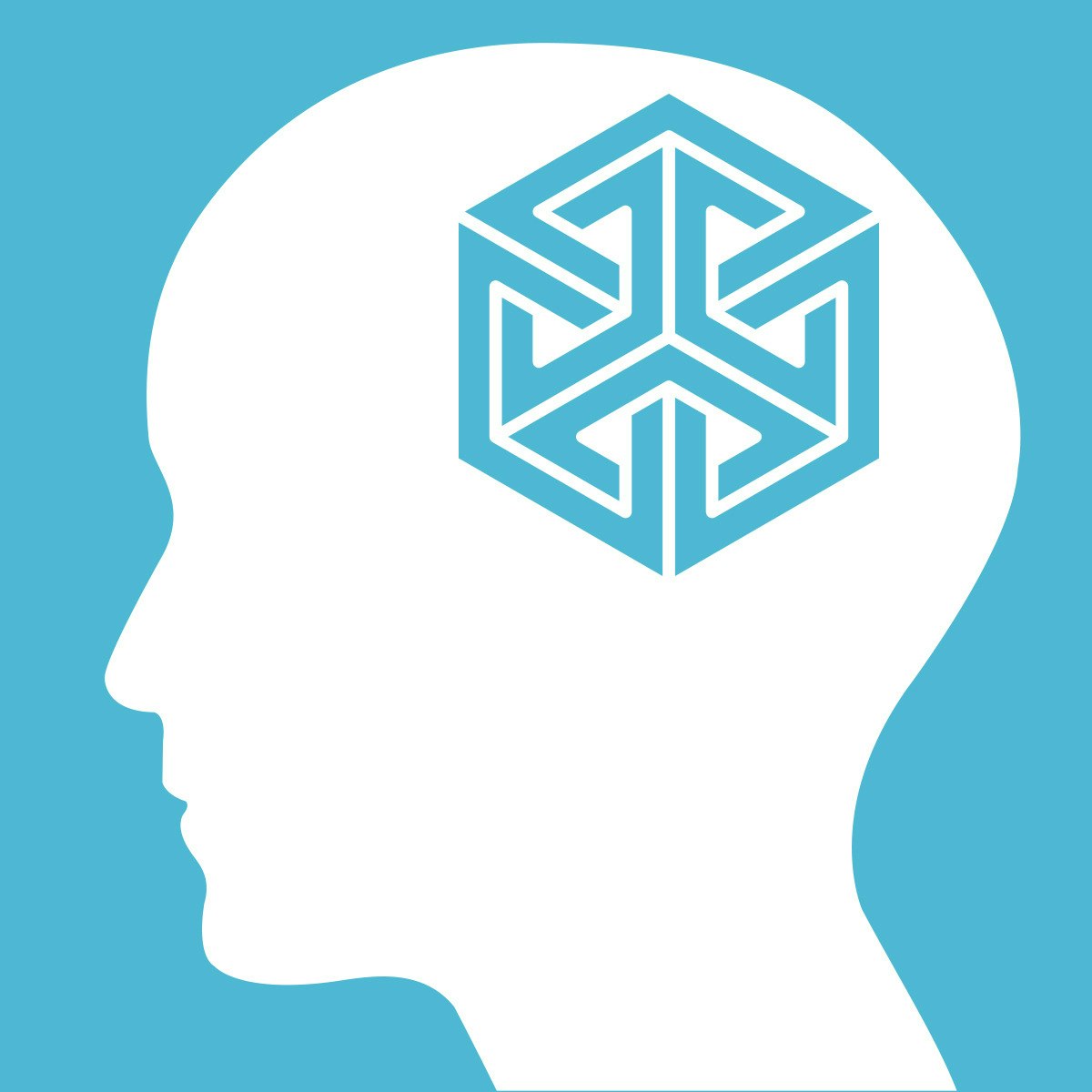Knowledge Engineer
Exploring the Career of a Knowledge Engineer
Knowledge Engineering sits at a fascinating intersection of artificial intelligence (AI), computer science, information science, and domain expertise. It's a field dedicated to capturing human knowledge and encoding it into systems that can reason, solve problems, and make decisions much like a human expert would. These systems, often called knowledge-based systems or expert systems, aim to replicate the judgment and behavior of specialists in specific fields, automating complex tasks and making expertise more scalable and accessible.
Working as a knowledge engineer involves designing and building these intelligent systems. This often means diving deep into a particular subject area – be it medicine, finance, or manufacturing – to understand how experts think. It involves structuring this complex, often implicit, knowledge into formal representations like ontologies or rule sets that computers can process. The prospect of making expert knowledge explicit and computable, enabling AI systems to tackle high-level problems, is a key draw for many in this field.
Introduction to Knowledge Engineering
What is Knowledge Engineering?
At its core, knowledge engineering is the process of building knowledge-based systems (KBSs). Think of it as translating the expertise found in the head of a human expert into a format that a computer can understand and use. This involves not just collecting facts (data) or organized facts (information), but understanding the relationships, rules, heuristics, and reasoning processes that constitute "knowledge" in a particular domain.
The goal is to create AI systems that can perform tasks requiring specialized human intellect, such as diagnosing medical conditions, configuring complex technical systems, or offering financial advice. These systems leverage large knowledge bases and reasoning mechanisms to provide solutions to real-world problems, often increasing speed, consistency, and accessibility of expertise.
Imagine trying to teach a computer how a doctor diagnoses an illness. A knowledge engineer would work with doctors to understand their thought process: what questions they ask, what symptoms they look for, how they weigh different factors, and what rules they follow (even subconscious ones). The engineer then translates this complex web of information into a structured format, like a decision tree or a set of logical rules, that the computer can follow to suggest a diagnosis.
History and Evolution
Knowledge engineering emerged as a distinct field within artificial intelligence in the 1970s and gained prominence in the 1980s. Early efforts, like the MYCIN system for medical diagnosis, focused on capturing the explicit rules used by experts. Researchers often worked directly with domain experts, attempting to "transfer" their knowledge directly into computer programs, sometimes building the necessary AI tools like inference engines concurrently.
This initial "transfer view" faced challenges. It became clear that much expert knowledge is implicit or intuitive and hard to articulate directly as rules. Simply transferring explicit rules often missed crucial context or "collateral knowledge". Consequently, the field evolved from a simple transfer process towards a more sophisticated modeling approach.
Modern knowledge engineering involves constructing various models of human knowledge and problem-solving processes. It incorporates insights from cognitive science, linguistics, and philosophy, alongside computer science. The advent of the Semantic Web, powerful modeling languages like OWL (Web Ontology Language), and technologies like knowledge graphs have further transformed the field, enabling more robust and flexible ways to represent and reason with knowledge.
What Makes Knowledge Engineering Exciting?
One of the most compelling aspects of knowledge engineering is the opportunity to bridge the gap between human expertise and artificial intelligence. Knowledge engineers act as translators, making complex human reasoning accessible to machines. This involves deep engagement with experts from diverse fields, learning about their domain, and understanding the nuances of their decision-making processes.
The impact of this work can be significant. Knowledge engineers build systems that enhance productivity, improve accuracy, and solve problems previously intractable for computers. They contribute to advancements in areas like healthcare, finance, customer service, and scientific discovery by creating tools that augment human capabilities or automate complex reasoning tasks.
Furthermore, the field is constantly evolving, particularly with the rise of large language models (LLMs) and new AI techniques. Knowledge engineers are at the forefront of integrating structured knowledge with these powerful new technologies, exploring hybrid approaches that promise even more sophisticated and reliable AI systems. The challenge of representing, managing, and leveraging knowledge in an increasingly complex digital world keeps the field dynamic and intellectually stimulating.
Role and Responsibilities of a Knowledge Engineer
Day-to-Day Activities
The daily life of a knowledge engineer often revolves around the core tasks of knowledge acquisition, representation, and system integration. A significant portion of their time might be spent interviewing domain experts, reading technical documents, or analyzing datasets to understand and extract relevant knowledge. This "knowledge elicitation" phase is crucial for capturing the intricacies of expert reasoning.
Once knowledge is gathered, the engineer structures it into a formal representation. This could involve developing ontologies (formal models of concepts and their relationships), creating rule sets for expert systems, or building knowledge graphs. They ensure this knowledge is accurate, consistent, and machine-readable, essentially creating the "brain" of the knowledge-based system.
Other common tasks include designing, developing, and maintaining the knowledge bases themselves, integrating these systems with other software applications, and continuously evaluating and refining the system's performance. This involves testing the system's reasoning, validating its outputs against expert judgment, and updating the knowledge base as the domain evolves or new information becomes available. They also work on defining taxonomies and ensuring the overall organization and usability of the knowledge assets.
These books offer insights into managing knowledge within IT frameworks and defining clear business rules, both essential aspects of structuring knowledge for systems.
This course provides practical experience in collecting and integrating data, a common prerequisite for knowledge structuring.
Collaboration and Communication
Knowledge engineering is rarely a solitary pursuit. Effective collaboration is paramount, as engineers must work closely with domain experts—the individuals whose knowledge they are trying to capture. This requires excellent communication and interpersonal skills to build rapport, ask insightful questions, and accurately interpret the expert's explanations, even when dealing with highly specialized or implicit knowledge.
Knowledge engineers also frequently collaborate with other technical teams, such as AI/ML engineers, software developers, and data engineers. They might work with AI teams to integrate knowledge graphs with machine learning models or collaborate with software developers to embed expert system logic into larger applications. Clear communication is vital to ensure everyone understands the knowledge representation and how the system functions.
Presenting findings, explaining the system's logic, and training end-users are also key responsibilities. Knowledge engineers need to translate complex technical concepts into understandable terms for various audiences, from business stakeholders to the people who will ultimately use the system. Strong information literacy and the ability to organize and present information clearly are crucial.
These courses focus on organizing information and using concept mapping, skills highly relevant to knowledge structuring and communication.
Tools of the Trade
Knowledge engineers utilize a variety of specialized tools and technologies. Ontology editors like Protégé are fundamental for creating and managing formal representations of knowledge. Protégé is a widely used, free, open-source platform that supports languages like OWL (Web Ontology Language) and RDF (Resource Description Framework).
Familiarity with Semantic Web technologies is essential. This includes understanding standards like RDF (for representing data as statements), RDFS (RDF Schema, for basic vocabulary definition), and OWL (for more complex ontological modeling). Querying knowledge graphs often involves using SPARQL, the standard query language for RDF data.
Depending on the application, knowledge engineers might also work with rule engines (systems that execute predefined rules based on input data), logic programming languages (like Prolog), graph databases (like Neo4j or Amazon Neptune) for storing and querying knowledge graphs, and various data integration and transformation tools. Basic programming skills (e.g., in Python or Java) are often necessary for scripting, automation, and integration tasks.
Where Do Knowledge Engineers Work?
Knowledge engineers are employed across a wide range of industries where capturing and leveraging expert knowledge provides a competitive advantage or solves critical problems. Historically, medicine was an early adopter, with expert systems developed for diagnosis and treatment recommendations. Healthcare continues to be a major area, using knowledge engineering for clinical decision support, analyzing medical literature, and managing patient data.
Financial services rely on knowledge engineers for applications like fraud detection, risk assessment, credit scoring, and automated financial advising. Manufacturing industries use knowledge-based systems for process optimization, quality control, diagnostics, and configuring complex products. Technology companies, particularly those involved in search engines, e-commerce, and AI development, heavily employ knowledge engineers to structure information, build knowledge graphs (like Google's Knowledge Graph), and improve semantic understanding.
Other sectors include customer service (powering intelligent chatbots and support systems), legal services (document analysis, legal research), energy (system monitoring, diagnostics), aerospace (complex system configuration, diagnostics), and government/defense (intelligence analysis, logistics planning). Essentially, any field dealing with complex information and decision-making can benefit from knowledge engineering.
This course delves into the technology behind search engines, a key application area for knowledge engineering.
Core Skills and Competencies
Essential Technical Skills
A strong technical foundation is crucial for a knowledge engineer. Proficiency in logic, including propositional and predicate logic, is fundamental for understanding knowledge representation and reasoning mechanisms. Experience with data modeling techniques, including relational database concepts and, more specifically, ontology design principles and graph data modeling, is essential for structuring knowledge effectively.
Knowledge of core AI concepts, particularly in knowledge representation and reasoning (KR&R), is required. Familiarity with Semantic Web standards like RDF, RDFS, OWL, and SPARQL is often expected. Programming skills, commonly in languages like Python or Java, are needed for building tools, automating tasks, and integrating systems. Depending on the role, experience with database systems (SQL and NoSQL, especially graph databases) might be necessary.
Expertise in Natural Language Processing (NLP) techniques is increasingly valuable, as knowledge is often extracted from unstructured text. This includes understanding concepts like entity recognition, relation extraction, and text classification. Familiarity with machine learning concepts can also be beneficial, especially for hybrid systems that combine symbolic knowledge with statistical learning.
These courses cover essential technical areas like NLP, embeddings, and working with JSON data, often encountered in knowledge engineering tasks.
This book explores the integration of neural networks and symbolic logic, a growing area relevant to modern knowledge engineering.
Crucial Soft Skills
Technical expertise alone isn't sufficient; knowledge engineers need a strong set of soft skills. Excellent problem-solving abilities are paramount. They must analyze complex problems, identify the necessary knowledge, and devise effective ways to represent and utilize it. This often involves abstract thinking and the ability to grapple with ambiguity.
Communication skills are critical, both written and oral. Knowledge engineers must effectively interview domain experts, articulate complex ideas clearly, document their work thoroughly, and collaborate with diverse teams. Active listening and the ability to ask probing questions are essential for successful knowledge elicitation.
Analytical and logical reasoning skills underpin much of the work, from understanding expert logic to designing robust knowledge structures. Attention to detail is vital, as small inaccuracies in knowledge representation can lead to significant errors in system behavior. Adaptability and a willingness to learn are also important, as the field and its associated technologies are constantly evolving.
Keeping Up with Trends
The field of AI is advancing rapidly, and knowledge engineering is no exception. Staying current with emerging trends is crucial for long-term career success. The rise of Large Language Models (LLMs) like GPT-4 and Llama 2 presents both challenges and opportunities. Knowledge engineers are exploring how to integrate structured knowledge graphs with LLMs to improve their factuality, reasoning capabilities, and explainability, leading to more robust hybrid AI systems.
Techniques for automated knowledge graph construction, leveraging machine learning and NLP to extract knowledge from large text corpora, are becoming increasingly sophisticated. There's also growing interest in explainable AI (XAI), where knowledge representation plays a role in making the decisions of complex AI models more transparent and understandable.
Furthermore, the application of knowledge engineering principles is expanding into new areas, driven by the need to manage and make sense of vast amounts of data generated by IoT devices and complex simulations (digital twins). Staying updated requires continuous learning, reading research papers, attending conferences, and experimenting with new tools and techniques. Exploring platforms like OpenCourser can help identify relevant courses and resources.
This course focuses on leveraging advanced LLMs like Llama2, a key trend impacting knowledge engineering.
Formal Education Pathways
Undergraduate Foundations
A bachelor's degree is typically the minimum requirement for entering the field of knowledge engineering. Computer Science is a common and highly relevant undergraduate major, providing foundational knowledge in programming, algorithms, data structures, databases, and artificial intelligence. Degrees in related fields like Information Technology or Software Engineering can also provide a strong basis.
However, knowledge engineering draws from multiple disciplines. Degrees in Cognitive Science can be advantageous, offering insights into human reasoning, memory, and knowledge representation. Mathematics or Logic provides a rigorous foundation for understanding formal representation and reasoning systems. Even degrees in fields like Linguistics (for NLP focus) or Philosophy (especially logic and epistemology) can offer relevant perspectives.
Regardless of the specific major, coursework should ideally include subjects like discrete mathematics, logic, database systems, artificial intelligence, algorithms, and programming. Exposure to statistics and machine learning is also increasingly beneficial. Strong analytical and problem-solving skills developed through rigorous academic work are essential.
Graduate Studies
While a bachelor's degree can open doors to entry-level positions, many knowledge engineering roles, particularly those involving research or more advanced system design, benefit from or require a graduate degree (Master's or PhD). A Master of Science (M.Sc.) in Computer Science with a specialization in Artificial Intelligence, Machine Learning, or Data Science is a common pathway.
Some universities offer specialized graduate programs directly focused on Knowledge Engineering, Knowledge Management, Semantic Web Technologies, or Human-Centered Computing, which provide more targeted training. These programs delve deeper into topics like ontology engineering, knowledge representation languages (OWL, RDF), automated reasoning, expert systems, knowledge acquisition techniques, and advanced AI topics.
A Master's degree typically involves advanced coursework and often a thesis or capstone project, allowing students to gain practical experience in building knowledge-based systems or conducting research in the field. Look for programs that offer courses specifically covering ontologies, knowledge graphs, semantic technologies, and advanced AI reasoning.
This book delves into advanced logic systems, often covered in specialized graduate studies relevant to knowledge representation and reasoning.
Research Frontiers
For those interested in pushing the boundaries of the field, pursuing a PhD is the typical route. Doctoral research in knowledge engineering explores advanced topics and contributes new methods, tools, or theories. Current research frontiers often lie at the intersection of knowledge representation and other areas of AI.
Key research areas include developing more scalable and automated methods for building and maintaining large knowledge graphs, improving automated reasoning techniques (including dealing with uncertainty and inconsistency), and integrating symbolic knowledge representation with deep learning models (Neuro-Symbolic AI) to create more robust, interpretable, and generalizable AI systems.
Other active research areas involve enhancing knowledge acquisition from diverse sources (text, images, data), developing techniques for explainable AI using knowledge structures, creating advanced ontology engineering methodologies, and applying knowledge-based approaches to new scientific and industrial challenges. PhD programs provide the opportunity to specialize deeply and contribute original work to the field.
This course explores graph analytics, a technique often used in advanced knowledge graph research and applications.
Online Learning and Self-Guided Pathways
Can You Learn Knowledge Engineering Online?
Absolutely. While a formal degree provides a structured foundation, transitioning into knowledge engineering or supplementing existing skills through online learning is entirely feasible, especially given the practical nature of many required competencies. The wealth of online courses, tutorials, and documentation makes self-guided learning a viable path for motivated individuals.
Online platforms offer courses covering fundamental areas like programming (Python, Java), databases (SQL, graph databases), AI and machine learning basics, logic, and Semantic Web technologies (RDF, OWL, SPARQL). You can find specialized courses focused on ontology development, knowledge graph construction, and specific tools like Protégé. OpenCourser, for instance, aggregates thousands of courses, allowing learners to easily browse options and compare syllabi.
The key to success via online learning is discipline, structure, and practical application. It's crucial to not just watch videos but to actively engage with the material through coding exercises, projects, and contributing to open-source initiatives. Building a portfolio of tangible work becomes even more important when following a non-traditional path.
Key Online Learning Topics
When pursuing knowledge engineering online, prioritize topics that form the core of the discipline. Foundational programming skills, particularly in Python, are essential for many tasks. Understanding database concepts, including both relational (SQL) and graph databases, is crucial for managing knowledge.
Delve into Semantic Web technologies: learn RDF for data representation, RDFS and OWL for ontology creation, and SPARQL for querying knowledge graphs. Mastering ontology design principles – understanding how to model a domain effectively, choose appropriate relationship types, and ensure consistency – is a central skill. Familiarity with common ontology editors like Protégé is necessary.
Explore core AI concepts related to knowledge representation and reasoning. Understanding different reasoning mechanisms (e.g., deductive, inductive, abductive) and logic formalisms is beneficial. Additionally, gaining knowledge of Natural Language Processing (NLP) techniques for extracting information from text is increasingly important. Learning about rule-based systems and their implementation can also be valuable.
These courses cover foundational Semantic Web concepts and practical application using rule-based systems like Drools.
These books provide in-depth coverage of Semantic Web technologies and ontology building, key topics for online learners.
Building a Portfolio
For those learning online or transitioning careers, a strong portfolio showcasing practical skills is essential to demonstrate capabilities to potential employers. Theoretical knowledge is important, but hands-on experience proves you can apply what you've learned. Projects don't need to be overly complex initially; focus on demonstrating core competencies.
Consider building a small-to-medium-sized ontology for a domain you're interested in, perhaps using Protégé and OWL. Document your design choices and the reasoning behind your model. Another project could involve extracting structured information from text (e.g., using NLP libraries in Python) and populating a knowledge graph (using RDF and potentially a graph database).
Implementing a simple rule-based expert system for a specific task (e.g., recommending products, diagnosing simple technical issues) can also showcase relevant skills. Contributing to existing open-source knowledge graph projects (like Wikidata or domain-specific biomedical ontologies) is an excellent way to gain experience and visibility. Clearly document your projects, including the problem addressed, your approach, the tools used, and the outcomes, perhaps on a personal website or platform like GitHub.
These courses involve working with data and search technologies, providing practical skills applicable to portfolio projects.
Building semantic web services, as discussed in these books, can form the basis of compelling portfolio projects.
Career Progression and Opportunities
Starting Your Journey
Entry-level roles in knowledge engineering often focus on specific aspects of the knowledge lifecycle. Titles might include "Knowledge Analyst," "Ontology Engineer," "Semantic Data Modeler," or "Junior Knowledge Engineer." In these roles, individuals typically work under the guidance of senior engineers.
Responsibilities might involve assisting with knowledge elicitation by documenting interviews or analyzing source materials, contributing to the development and maintenance of ontologies or knowledge bases based on defined specifications, performing data cleaning and transformation tasks to prepare data for ingestion into knowledge systems, or testing and validating components of a knowledge-based system.
These initial roles provide valuable hands-on experience with the tools and methodologies of the field. They offer opportunities to deepen technical skills, learn about specific application domains, and understand the practical challenges of building and deploying knowledge systems within an organization.
Mid-Career Advancement
With experience, knowledge engineers typically progress towards more senior roles with greater responsibility and autonomy. Mid-career paths often involve specialization or leadership. One path involves deepening expertise in a particular application domain (e.g., becoming a specialist in biomedical knowledge engineering or financial ontologies).
Another path leads towards technical leadership, where engineers design the architecture for complex knowledge systems, mentor junior team members, and make key technical decisions. They might take on roles like "Senior Knowledge Engineer," "Knowledge Architect," or "Semantic Solutions Architect." Project management skills become increasingly important as engineers may lead specific knowledge engineering initiatives.
Mid-career professionals often bridge the gap between domain experts, technical teams, and business stakeholders. They need a strong grasp of both the technical details and the strategic goals the knowledge system aims to achieve. Continuous learning remains crucial to stay abreast of technological advancements and apply them effectively.
Reaching Senior Levels
At the most senior levels, knowledge engineers often move into strategic leadership or highly specialized expert roles. Titles might include "Chief Knowledge Architect," "Principal Knowledge Engineer," "AI Strategy Director," or "Research Scientist" (in industrial or academic labs). These roles typically require extensive experience and a deep understanding of both technology and business/domain strategy.
Senior leaders may define the overall knowledge management and AI strategy for an organization, oversee large teams, drive innovation in knowledge-based systems, and represent the organization's expertise externally. They focus on the long-term vision for leveraging knowledge assets and integrating AI capabilities.
Alternatively, senior engineers might become recognized experts in a specific niche of knowledge engineering, contributing groundbreaking work, developing novel methodologies, or leading complex, high-impact projects. These roles often involve significant research and development components and require staying at the absolute cutting edge of the field.
Ethical Considerations in Knowledge Engineering
Addressing Bias in Knowledge
Knowledge engineers grapple with significant ethical challenges, particularly concerning bias. Knowledge-based systems are built upon information gathered from human experts or extracted from data, both of which can reflect societal biases. If not carefully addressed, these biases can become encoded into the system, leading to unfair or discriminatory outcomes.
For example, a medical diagnosis system trained primarily on data from one demographic group might perform poorly for others. Similarly, knowledge elicited solely from a narrow group of experts might exclude alternative perspectives or perpetuate existing inequalities. Engineers must actively work to identify potential sources of bias during knowledge acquisition and representation.
Mitigation strategies include seeking knowledge from diverse sources and experts, using fairness-aware algorithms during automated knowledge extraction, carefully auditing knowledge bases for biased assumptions, and designing systems that allow for transparency and challenge. It requires a conscious effort to ensure the knowledge captured is representative and equitable.
Privacy Concerns
Knowledge-based systems, especially in fields like healthcare or finance, often handle sensitive personal information. Knowledge engineers have an ethical responsibility to ensure these systems are designed with privacy protection as a core principle. This involves adhering to data privacy regulations (like GDPR or HIPAA) and implementing robust security measures.
Knowledge acquisition processes must respect the privacy of individuals whose data might be involved or whose expertise is being elicited. Techniques like data anonymization or aggregation might be necessary when building knowledge bases from sensitive datasets. Secure storage and access control mechanisms are crucial to prevent unauthorized access to the knowledge base.
Furthermore, the inferences drawn by knowledge-based systems can sometimes reveal sensitive information indirectly. Engineers must consider the potential privacy implications of the system's reasoning capabilities and implement safeguards to prevent unintended disclosures.
Transparency and Explainability
As knowledge-based systems are used for increasingly critical decisions (e.g., loan applications, medical treatment plans), ensuring their transparency and explainability becomes ethically vital. Users, regulators, and affected individuals need to understand how these systems arrive at their conclusions, especially when the outcomes are significant or potentially harmful.
Knowledge engineering, particularly using symbolic representations like rules and ontologies, often lends itself better to explainability than purely "black box" machine learning models. However, even complex knowledge bases can be opaque. Engineers must strive to design systems that can provide clear justifications for their reasoning processes.
This involves developing methods for tracing inferences back to specific rules or knowledge fragments, generating explanations in natural language, and visualizing knowledge structures effectively. Ensuring that AI systems are not just accurate but also understandable and accountable is a key ethical challenge for the field.
This course explores the philosophical aspects of AI and intelligence, touching upon themes relevant to transparency and the nature of machine reasoning.
Knowledge Engineering in the Age of AI and Automation
The Impact of Large Language Models (LLMs)
The advent of powerful Large Language Models (LLMs) like ChatGPT has significantly impacted the landscape of AI, including knowledge engineering. LLMs excel at processing and generating human-like text, and they implicitly capture vast amounts of world knowledge from their training data. This raises questions about the role of traditional, explicitly structured knowledge representation.
However, LLMs also have limitations: they can "hallucinate" incorrect information, struggle with complex reasoning, and lack transparency. This creates new opportunities for knowledge engineering. Integrating structured knowledge graphs with LLMs (a technique sometimes called Retrieval-Augmented Generation or RAG) can ground LLM responses in factual data, improve reasoning accuracy, and provide traceable sources for their outputs.
Rather than replacing knowledge engineering, LLMs are creating demand for hybrid approaches. Knowledge engineers are needed to build and maintain the knowledge graphs that power these more reliable and sophisticated AI systems. The focus shifts towards leveraging structured knowledge to enhance and control the capabilities of large generative models.
This book discusses managing knowledge semantically, a topic gaining renewed importance in the context of structuring information for AI systems.
These courses delve into vector databases and graph analytics, technologies increasingly used to structure and retrieve information for modern AI systems, including those involving LLMs.
Evolving Market Demands
Market demands for knowledge engineers are shifting in response to broader AI trends. While demand for purely rule-based expert systems (the focus of early knowledge engineering) may have decreased in some areas, the need for structuring knowledge, particularly for consumption by AI and machine learning systems, is growing.
There is increasing demand for engineers skilled in building and managing enterprise knowledge graphs. Companies recognize the value of organizing their internal information and data into structured formats that can power semantic search, recommendation engines, and intelligent automation. Expertise in ontology development, data integration, and semantic technologies is highly sought after.
The rise of hybrid AI systems, combining symbolic knowledge with machine learning, is creating new roles. Engineers who understand both knowledge representation and ML techniques are needed to design and implement these sophisticated solutions. According to some analyses, AI like OpenAI's Deep Research could automate significant portions (potentially up to 18% globally) of knowledge work tasks involving research and analysis, further emphasizing the need for skills in structuring and managing the knowledge these systems rely on.
Future-Proofing Your Career
Given the dynamic nature of AI, how can knowledge engineers ensure their skills remain relevant? Focusing on foundational principles is key. A deep understanding of logic, knowledge representation paradigms, ontology design, and data modeling provides enduring value, even as specific tools and technologies change.
Adaptability and a commitment to lifelong learning are crucial. Engineers must actively stay informed about advancements in AI, particularly in areas like LLMs, graph neural networks, and automated knowledge discovery. Embracing hybrid approaches—learning how to combine structured knowledge with machine learning techniques—will be increasingly important.
Developing strong domain expertise alongside technical skills can also enhance career prospects. Being a knowledge engineer who also deeply understands a specific industry (like finance or bioinformatics) makes you significantly more valuable. Finally, honing soft skills like communication, collaboration, and critical thinking remains essential, as these are less likely to be automated and are vital for bridging the gap between technology, experts, and business needs.
Global Job Market Landscape
Geographic Hotspots
The demand for knowledge engineers tends to be concentrated in regions with strong technology sectors and significant investment in artificial intelligence research and development. North America, particularly the United States (Silicon Valley, Seattle, Boston, New York) and Canada (Toronto, Montreal, Vancouver), represents a major hub for knowledge engineering roles, driven by large tech companies, startups, and research institutions.
Europe also has a vibrant ecosystem, with significant activity in countries like Germany, the United Kingdom, France, and the Netherlands. Cities such as Berlin, London, Paris, and Amsterdam host numerous companies and research centers working on AI, data science, and semantic technologies. Government initiatives promoting AI research also contribute to job creation in the EU.
In the Asia-Pacific region, countries like China, Japan, South Korea, Singapore, and India are rapidly growing their AI capabilities and consequently, the demand for related expertise, including knowledge engineering. Major technology hubs and research universities in these countries are increasingly sources of opportunities in the field.
Remote Work Landscape
Like many roles in the technology sector, knowledge engineering positions increasingly offer remote work options. The nature of the work, which often involves computer-based tasks like modeling, programming, and data analysis, lends itself well to remote arrangements. Many companies, from large corporations to smaller startups, now hire knowledge engineers regardless of their physical location.
However, some aspects of the role, particularly knowledge elicitation which often involves intensive workshops or interviews with domain experts, might benefit from in-person interaction. Collaboration with diverse, cross-functional teams can also sometimes be smoother face-to-face. Therefore, opportunities might range from fully remote positions to hybrid models requiring occasional office presence.
Challenges of remote work include maintaining effective communication and collaboration across distributed teams and ensuring access to necessary resources or sensitive data securely. However, the growing acceptance of remote work significantly broadens the potential job market for skilled knowledge engineers, allowing them to access opportunities globally.
Cultural Nuances
Knowledge itself is often culturally situated. When designing knowledge systems, particularly those intended for global use or specific cultural contexts, engineers must be mindful of potential nuances. Concepts, classifications, and even expert reasoning processes can differ across cultures.
For example, a knowledge-based system designed for medical diagnosis might need adjustments based on regional disease prevalence, local treatment guidelines, or cultural attitudes towards certain health practices. Similarly, a customer service chatbot's knowledge base might need to account for different communication styles, social norms, and linguistic variations.
Effective knowledge engineering in a global context requires cultural sensitivity and potentially involving experts or stakeholders from diverse backgrounds. Failing to consider these nuances can lead to systems that are ineffective, inappropriate, or even harmful in certain contexts. Awareness of how knowledge is constructed and interpreted differently across cultures is an important aspect of responsible knowledge system design.
Frequently Asked Questions (Career Focus)
Do I need a Computer Science degree?
While a Computer Science (CS) degree is a very common and beneficial background, it's not always strictly required to become a knowledge engineer. Degrees in related fields like Information Science, Cognitive Science, Mathematics, Logic, or even specific domain fields combined with strong technical self-study can provide viable pathways.
What matters most is demonstrating the necessary skills. These include understanding logic and knowledge representation, data modeling (especially ontologies and graphs), familiarity with semantic technologies (RDF, OWL, SPARQL), programming ability (often Python/Java), and strong analytical and communication skills. Relevant project experience, possibly showcased in a portfolio, can often compensate for a non-traditional academic background.
However, a CS degree provides a structured and comprehensive foundation in many core areas. Some employers, particularly for research-oriented or highly technical roles, may strongly prefer or require a CS or related technical degree, often at the graduate level. Online courses and certifications can help bridge gaps if your degree is in a different field.
How is it different from Data Science or Software Engineering?
While there's overlap, these roles have distinct focuses. Software Engineering primarily concerns the design, development, testing, and maintenance of software systems and applications. The focus is on building functional, reliable, and efficient code according to specified requirements.
Data Science focuses on extracting insights and knowledge from data, often large and complex datasets. Data scientists use statistical methods, machine learning algorithms, and data visualization techniques to analyze data, build predictive models, and communicate findings to solve business problems. Their primary focus is on the analysis and interpretation of data.
Knowledge Engineering focuses specifically on capturing, structuring, and representing human expertise and domain knowledge in computational systems. While they use data and require programming skills, their core focus is on modeling knowledge (often using ontologies, rules, or knowledge graphs) to enable systems to reason and solve problems like a human expert. It's more about representing the 'why' and 'how' behind expert decisions, rather than just finding patterns in data (Data Science) or building general software functionality (Software Engineering).
Which industries hire the most knowledge engineers?
Demand for knowledge engineers exists across various sectors, but some industries traditionally hire more heavily than others. The Technology sector is a major employer, with companies building large-scale knowledge graphs (e.g., for search engines like Google or social networks), developing AI platforms, and creating semantic search or recommendation systems.
Healthcare and Life Sciences have long utilized knowledge engineering for clinical decision support, drug discovery, bioinformatics (analyzing genomic data), and managing medical information. Financial Services employ knowledge engineers for risk assessment, fraud detection, regulatory compliance, and building expert systems for financial advice.
Other significant industries include Manufacturing (process optimization, configuration systems, diagnostics), Consulting firms (developing knowledge-based solutions for clients), Government and Defense (intelligence analysis, logistics), and Academia/Research Institutions. Increasingly, any large organization seeking to better manage and leverage its internal knowledge may seek knowledge engineering expertise.
Is domain expertise required before entering this field?
While deep domain expertise isn't always required for entry-level positions, having some familiarity or a strong aptitude for quickly learning a specific domain is highly advantageous. Knowledge engineers must work closely with domain experts, and understanding the basics of the field facilitates communication and knowledge elicitation.
Some roles, especially in highly specialized areas like medicine or finance, may explicitly require prior experience or education in that domain. For example, a knowledge engineer building a medical diagnosis system would benefit greatly from a background in healthcare or biology.
However, many knowledge engineers develop domain expertise on the job. The core skill set involves the *process* of acquiring, modeling, and representing knowledge, which can be applied across different domains. Demonstrating strong analytical skills, learning ability, and excellent communication can often overcome a lack of initial deep domain knowledge for many positions.
What are common career transition challenges?
Transitioning into knowledge engineering from another field can present challenges. If coming from a non-technical background, acquiring the necessary programming, logic, and data modeling skills can be a significant hurdle, often requiring dedicated study through online courses or bootcamps. Building a portfolio to demonstrate these skills becomes crucial.
Even for those with technical backgrounds, like software engineering or data science, there's a specific mindset shift required. Knowledge engineering emphasizes formal knowledge representation, ontologies, and symbolic reasoning, which might differ from typical software development or statistical modeling approaches. Learning the specific tools and standards (OWL, SPARQL, Protégé) is necessary.
Understanding the nuances of knowledge elicitation—how to effectively interview experts and capture often implicit knowledge—is a skill developed through practice. Finally, finding entry-level positions can sometimes be challenging as the field is somewhat specialized, requiring persistent job searching and networking.
How will AI advancements affect job security in this field?
The impact of AI advancements on knowledge engineering job security is multifaceted. On one hand, AI tools, including LLMs, might automate certain aspects of knowledge engineering, such as initial knowledge extraction from text or suggesting potential ontological relationships. This could potentially streamline workflows and change the nature of some tasks.
However, AI advancements, particularly the limitations of systems like LLMs (e.g., lack of reliability, explainability), are also driving *increased* demand for knowledge engineering skills. There's a growing need for experts who can structure knowledge explicitly (e.g., in knowledge graphs) to ground AI systems, improve their accuracy, and make them more trustworthy. Building and maintaining these knowledge structures requires human expertise.
While some analyses suggest AI could automate a significant portion of general knowledge work tasks (potentially impacting workers differently based on AI's capability), the consensus is that AI will augment rather than fully replace knowledge workers, including knowledge engineers. The role may evolve, focusing more on designing hybrid systems, ensuring knowledge quality, validating AI outputs, and managing the complex interplay between human expertise and machine intelligence. Adaptability and focusing on higher-level design and validation tasks will be key.
Further Exploration
Explore related fields and deepen your understanding using OpenCourser's resources:
- Artificial Intelligence Courses
- Data Science Courses
- Computer Science Courses
- OpenCourser Learner's Guide for study tips.
- Search for Semantic Web courses and books
The field of knowledge engineering offers a unique blend of technical challenge, intellectual stimulation, and practical impact. It requires a diverse skill set encompassing logic, programming, data modeling, communication, and domain understanding. While the path requires dedication, whether through formal education or self-guided online learning, the ability to build systems that capture and leverage human expertise makes it a rewarding career choice. As AI continues to evolve, the role of structuring, managing, and reasoning with knowledge remains critically important, positioning knowledge engineers at the forefront of creating more intelligent and capable systems.

